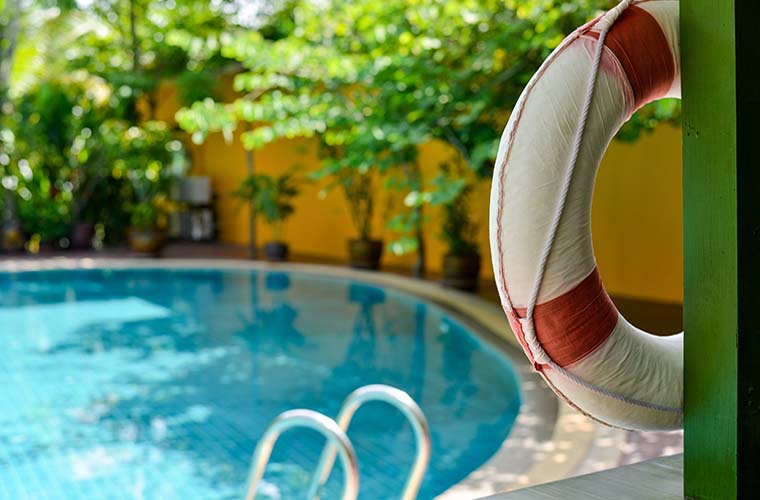St. Joseph's Children's Hospital Expert Reminds Florida Visitors to Keep Water Safety in Mind

Year-round sunshine, warmer water temperatures and beautiful beaches equal fun in Florida. Those same ingredients, though, can be a recipe for disaster.
Every year in the United States, nearly 1,000 children drown. In Florida, drowning rates for children under age 5 are more than double the national average and are higher than any other state in the nation. In fact, enough children drown in Florida each year to fill almost four preschool classrooms.
“Children can drown in seconds, and it typically occurs when a child is left unattended or during a brief lapse in supervision,” said Michelle Sterling, wellness and safety expert at BayCare’s St. Joseph’s Children’s Hospital. “Unlike the cries of help heard as a result of most injuries, drowning is silent.”
As out-of-state visitors flock to Florida to escape winter weather or visit family and friends, Sterling offers water safety tips to keep in mind whenever in or near water.
- Never leave children alone in or near water. Parents and caregivers should always actively supervise while children are playing in or near water, even in shallow wading pools. Children can drown in as little as one inch of water - and it can happen in a matter of seconds.
- Never rely on a personal floatation device or swimming lessons to protect a child. Learn CPR and keep rescue equipment, a telephone and emergency numbers poolside.
- For pool owners, install four-sided isolation fencing, at least 5 feet high, and equipped with self-closing, self-latching gates. Fencing should completely surround swimming pools and prevent direct access from a house or yard.
- Performing CPR on drowning victims immediately before paramedics arrive to help prevent brain damage and be the difference between life and death.
- Enroll children in swimming lessons taught by qualified instructors when they are ready. Afterwards, do not assume your child is "drown-proof" - he or she still needs constant supervision.
- Children should always wear a U.S. Coast Guard-approved personal floatation device when on a boat, near open bodies of water or when participating in water sports.
- Children ages 14 and under should never operate a personal watercraft.
